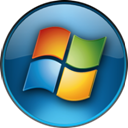Exploring the Best AcademiX GNU/Linux Alternatives for Education and Beyond
AcademiX GNU/Linux stands as a commendable Debian-based distribution tailored for educational environments, boasting a rich suite of free software covering subjects from mathematics to robotics, complete with virtual labs. Its Debian foundation and MATE desktop environment ensure accessibility even on older hardware, making it a powerful tool for learning. However, specific needs, preferences for different desktop environments, or a desire for broader software repositories might lead users to seek an AcademiX GNU/Linux alternative. This article delves into some of the best operating systems that can serve as excellent replacements, offering diverse features and ecosystems.
Top AcademiX GNU/Linux Alternatives
Whether you're looking for more general-purpose Linux distributions, commercial operating systems, or options with specific desktop environments, there's a strong contender out there. Here's a curated list of top alternatives that offer compelling features for both educational and general use:

Ubuntu
Ubuntu is a widely popular Debian Linux-based open-source operating system. It's an excellent AcademiX GNU/Linux alternative, offering a vast software repository, robust community support, and a user-friendly interface. Available for Free and Open Source use on Windows and Linux, it features customization, OTA Updates, a powerful APT package manager, and strong security & privacy, making it versatile for any educational or personal computing need.

Debian
As the foundational distribution for AcademiX GNU/Linux, Debian is a logical and powerful open-source alternative. It's renowned for its stability and flexibility, available for Free and Open Source use on Windows, Linux, Windows S, BSD, and Self-Hosted platforms. Key features include rolling release options, customizable environments, low memory usage, and a robust package control system, making it ideal for users who prioritize stability and control.

Linux Mint
Linux Mint is a highly popular open-source Linux distribution, building on both Debian and Ubuntu. It's a fantastic AcademiX GNU/Linux alternative for those seeking a modern, elegant, and user-friendly experience. Available for Free and Open Source use on Linux, it boasts features like a Windows-like interface, ad-free experience, out-of-the-box functionality, various desktop environments (Cinnamon, XFCE), and strong privacy focus.

Windows 10
For those needing a widely supported commercial operating system, Windows 10 from Microsoft offers a familiar environment with extensive software compatibility. As a commercial platform for Windows, it features an in-built GUI, OneDrive integration, and tablet support. While not open-source, its prevalence in many institutions might make it a necessary AcademiX GNU/Linux alternative for specific software or hardware requirements.

Manjaro Linux
Manjaro Linux is a user-friendly, Arch-based open-source Linux distribution known for its rolling release model and cutting-edge software. Available for Free and Open Source use on Linux and Arch Linux, it's a great AcademiX GNU/Linux alternative for users who want the benefits of Arch (like the AUR) without the complexity. It offers high customizability, lightweight performance, and strong stability, making it suitable for both casual and power users.

Windows 7
Though an older commercial offering from Microsoft, Windows 7 remains in use and could be an AcademiX GNU/Linux alternative for environments with legacy software dependencies. As a commercial platform for Windows, it features package installing, snap windows, and Windows XP compatibility. Its familiarity and broad hardware support can be a deciding factor for some users.

Fedora
Fedora is a community-driven, open-source Linux distribution sponsored by Red Hat, often serving as a testing ground for new features that eventually make their way into Red Hat Enterprise Linux. As a Free and Open Source Linux platform, it's a solid AcademiX GNU/Linux alternative for those who prefer the latest software and an out-of-the-box GNOME experience. It features an in-built GUI, key rebinding, and multiple language support.

elementary OS
elementary OS is a beautiful and fast open-source operating system based on Ubuntu, offering a sleek, macOS-like user interface. Available for Free and Open Source use on Linux, it's a compelling AcademiX GNU/Linux alternative for users who prioritize aesthetics and a clean, distraction-free environment. It supports Flatpak for easy application installation and is Debian package compatible, making it highly functional for educational and general use.

macOS
macOS, Apple's Unix-based operating system, offers a premium user experience and strong integration with Apple hardware and services. While not open-source, it's a powerful AcademiX GNU/Linux alternative for Mac users, providing a stable, secure, and intuitive environment. Available for Free on Mac, it features a Unix-like core, privacy-focused design, and powerful tools like Spotlight and QuickLook, making it excellent for creative and professional work.

Xubuntu
Xubuntu is an elegant, lightweight, and easy-to-use open-source operating system based on Ubuntu, featuring the Xfce desktop environment. As a Free and Open Source Linux platform, it's an excellent AcademiX GNU/Linux alternative for those seeking a less resource-intensive yet highly configurable system. Its Debian and Ubuntu foundations ensure compatibility and a wide array of software, making it perfect for older hardware or users who prefer a nimble desktop.
Choosing the right operating system depends heavily on your specific requirements, hardware, and comfort level with different interfaces. Whether you prioritize a vast software library, system stability, aesthetic appeal, or resource efficiency, the alternatives listed above provide compelling options beyond AcademiX GNU/Linux. Explore their features and communities to find the perfect fit for your educational or personal computing journey.